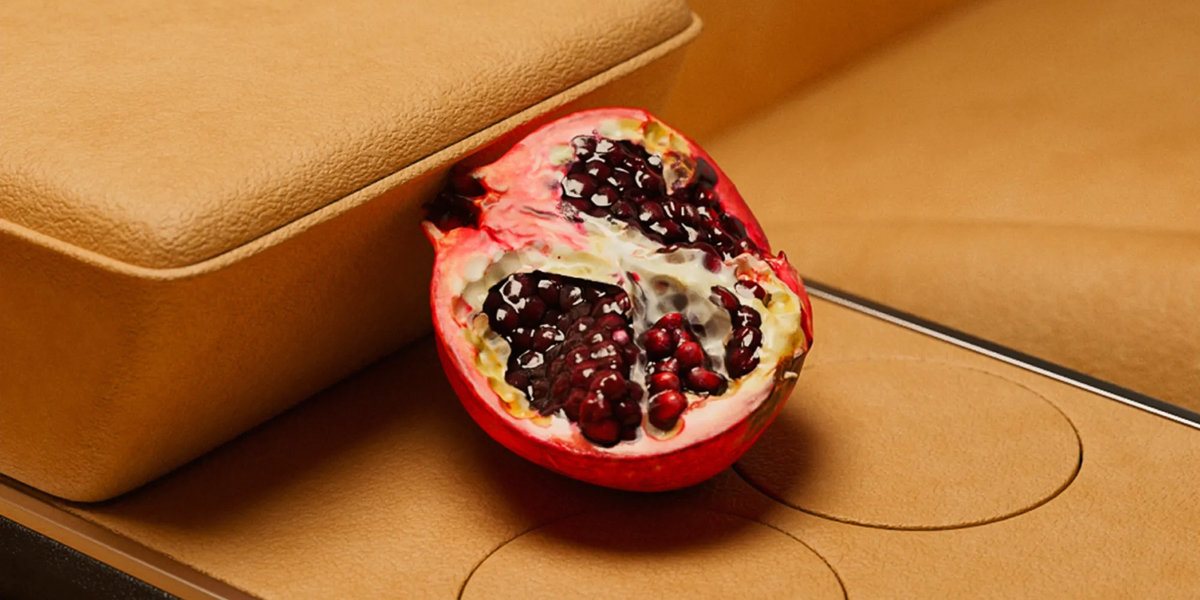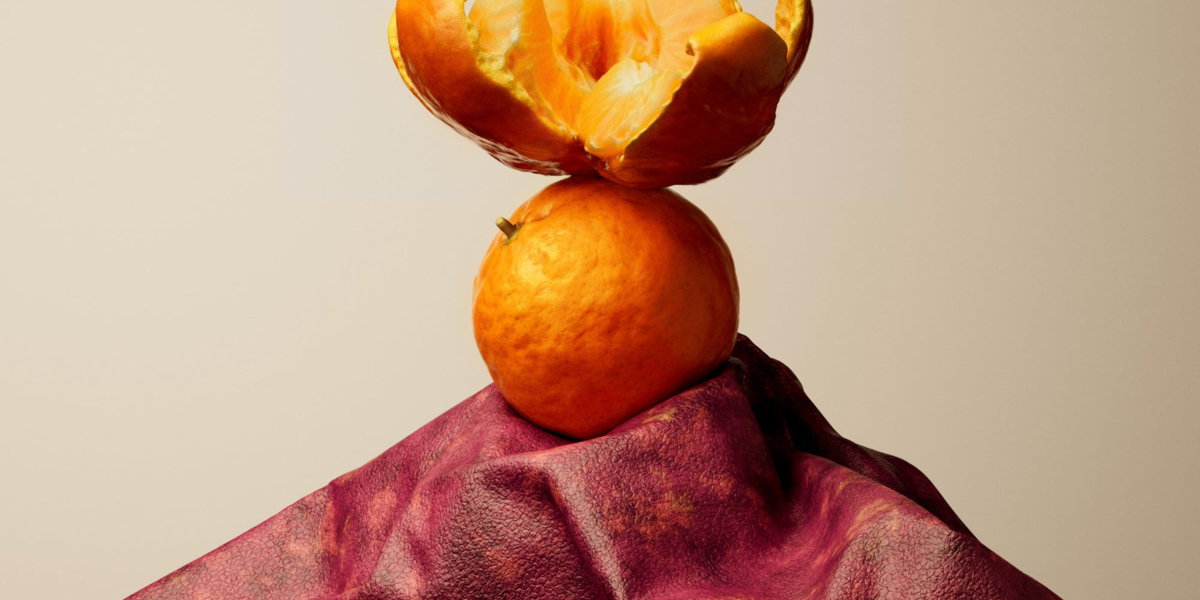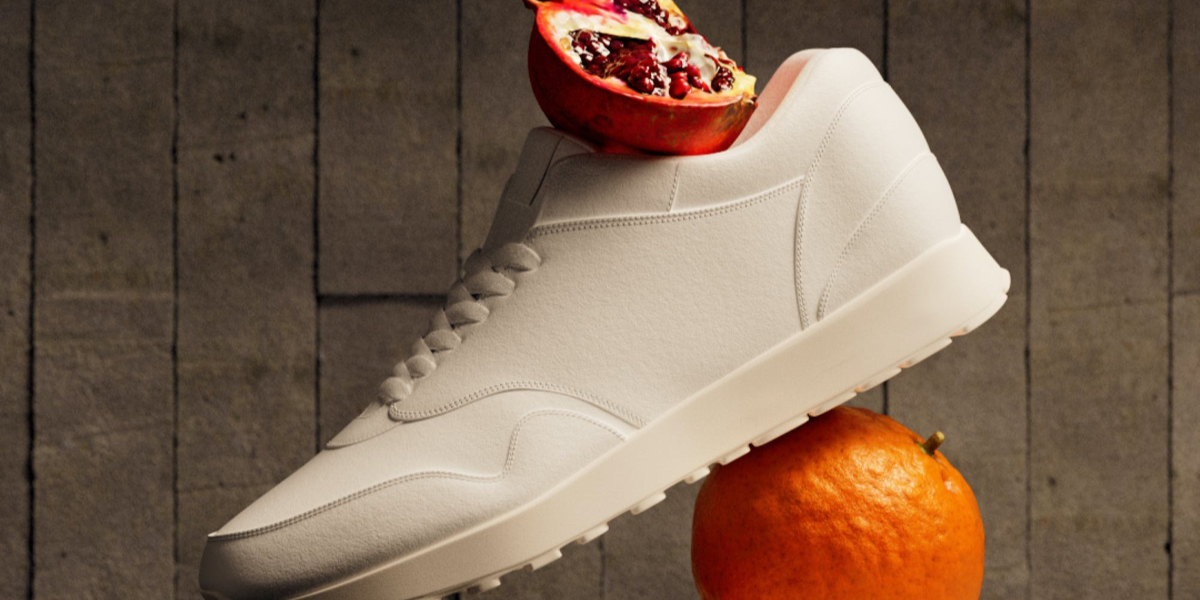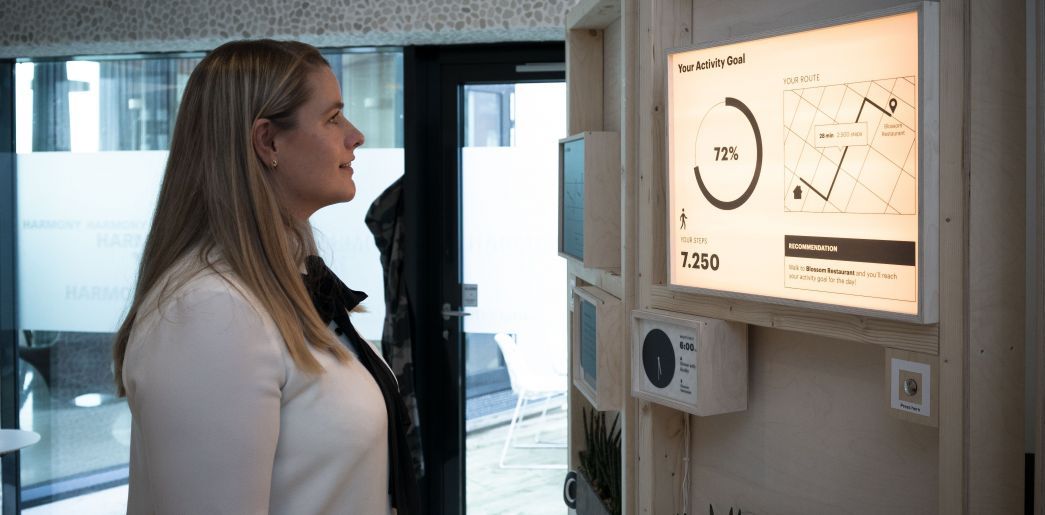AÑO
2023
CATEGORÍA
Cuerpo
OBJETIVOS
Producción y consumo responsables, Acción por el clima
PAL. CLAVE
Sustainable Material, circular production , fashion, textiles
PAÍS
México
CRÉDITOS
Axel and Alexis Gómez Ortigoza with Bárbara González Rolón, PhD
LINK
https://www.polybion.bio
Celium
Textiles grown from bacteria feeding on fruit
How does it work?
Celium is a premium alternative to animal-based leather and petroleum-derived synthetics composed of bacterial cellulose. A versatile textile with endless design possibilities, it can be customized by colour, graining, embossing, and water resistance — all while preserving its exceptional strength.
In cellular agriculture, cells from fungi, bacteria, or mammals consume nutrients in a sterile environment that promotes growth. Celium is grown by feeding bacteria with agro-industrial fruit waste. But first, Polybion sets up the perfect environment for the cells to self-organize and they create the cellulose structure as a metabolic by-product. Once formed, Celium’s cell-based membrane undergoes a sustainable stabilization process to achieve its high-performance characteristics.
Why is it needed?
Polybion believes biology is the best tool to face our global challenges. They use locally produced agro-industrial fruit waste as raw material to craft a sustainable leather alternative. By manufacturing with the building blocks of life and circularising supply chains, they produce a superior material while prioritising our planet.
How does it improve life?
Natural systems are cyclical; waste becomes nutrients that initiate new growth. By learning from nature, Polybion developed a production model that is not linear but a loop, simultaneously alleviating three major environmental problems: livestock, food waste, and plastic. This represents a paradigm shift from centuries of resource-mining practices to the regenerative cultivation of resources. Polybion is proud to be leading this charge.
Polybion's production model is EPA, REACH, and ZDHC compliant and concentrated within a 30-mile radius, dramatically reducing their carbon footprint. There is currently enough of the fruit waste to produce 168,000,000 square feet of Celium annually. With zero hazardous chemicals released in any part of the process, nor significant biomass outputs between growth cycles, Celium is as circular as it gets.





